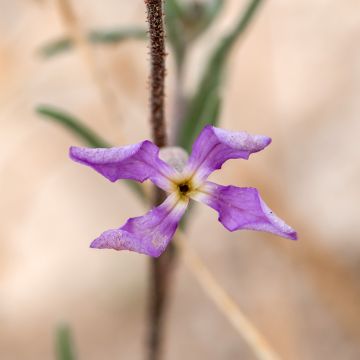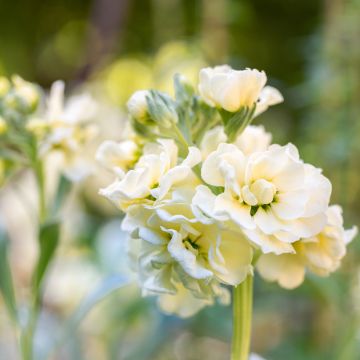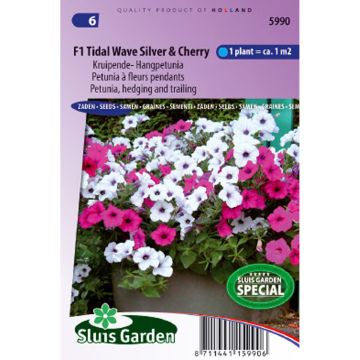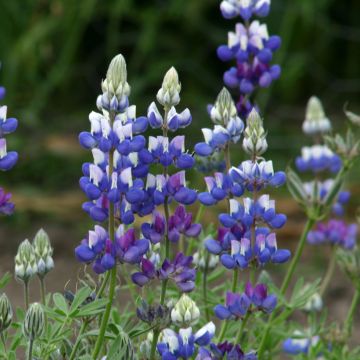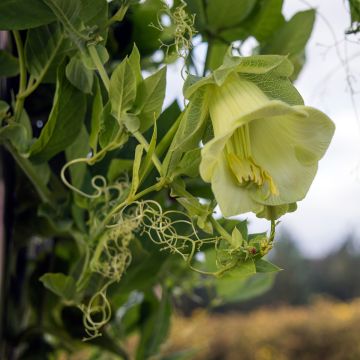

Wallflower Fair Lady Mixed Seeds
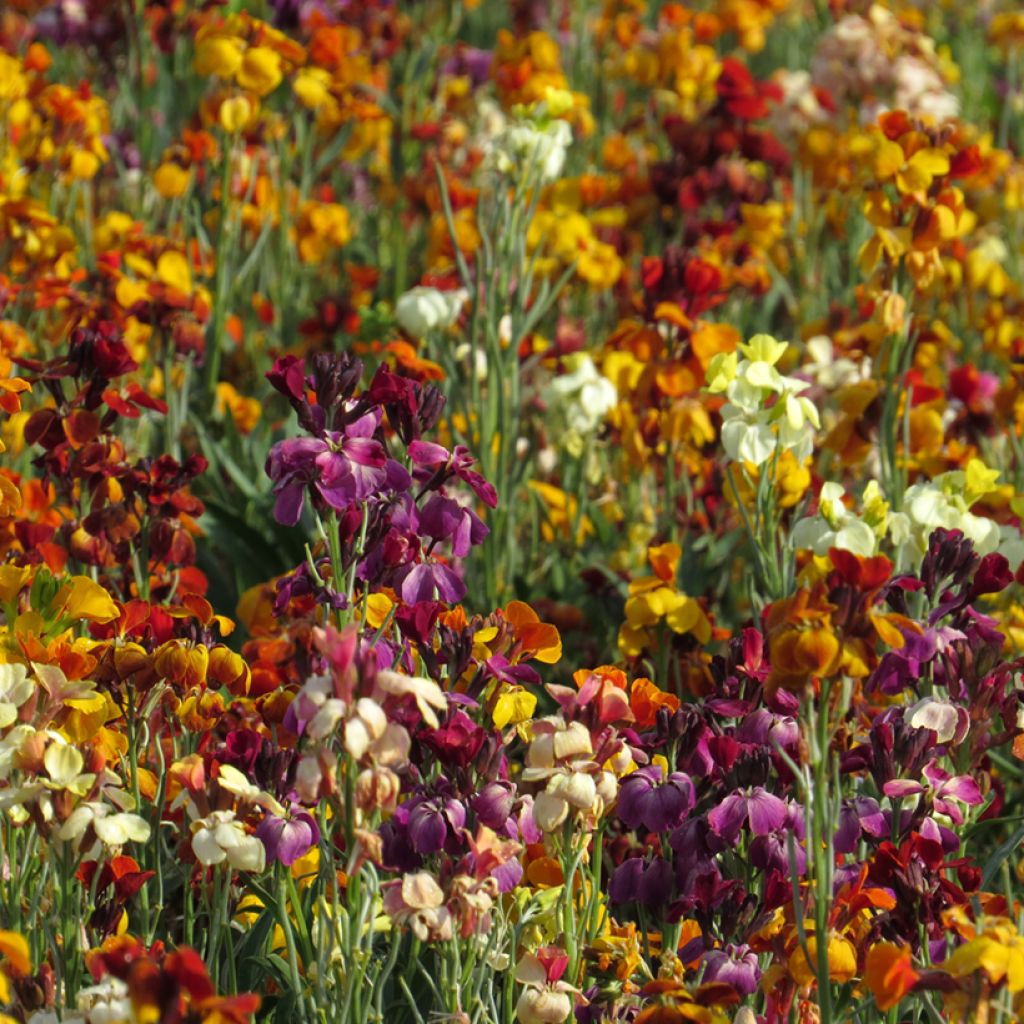

Wallflower Fair Lady Mixed Seeds
Wallflower Fair Lady Mixed Seeds
Erysimum x cheiri
Wallflower
The spike of these wallflowers was very abundant and I transplanted them into many pots, planters, and troughs, and I am eagerly awaiting spring.
Micheline K., 06/12/2018
Special offer!
Receive a €20 voucher for any order over €90 (excluding delivery costs, credit notes, and plastic-free options)!
1- Add your favorite plants to your cart.
2- Once you have reached €90, confirm your order (you can even choose the delivery date!).
3- As soon as your order is shipped, you will receive an email containing your voucher code, valid for 3 months (90 days).
Your voucher is unique and can only be used once, for any order with a minimum value of €20, excluding delivery costs.
Can be combined with other current offers, non-divisible and non-refundable.
Home or relay delivery (depending on size and destination)
Schedule delivery date,
and select date in basket
This plant carries a 6 months recovery warranty
More information
We guarantee the quality of our plants for a full growing cycle, and will replace at our expense any plant that fails to recover under normal climatic and planting conditions.

Would this plant suit my garden?
Set up your Plantfit profile →
Description
Wallflower 'Fair Lady Mixed' is a free-flowering selection that displays masses of fragrant blooms on neat plants. The simple flowers are intensely fragrant, combining beautiful pastel shades including soft pink, amber yellow, lemon yellow, apricot, dark brown, garnet red, scarlet red and purple. Wallflowers thrive in full sun in poor, dry soil where nothing else grows. Also suitable for growing in pots.
English Wallflower (in latin Erysimum cheiri or Cheiranthus cheiri) is a short-lived perennial plant belonging to the Brassicaceae family, native to southern Europe. It is often grown as an annual or biennial and is famous for its intense, clove-like fragrance. 'Fair Lady Mixed' is a very attractive selection that forms neat, compact plants (45-50cm tall for 20cm wide). It produces very colourful flowers, made up of four petals, grouped in clusters at the top of stems. The lanceolate leaves are greyish-green. This particular variety blooms continuously in May-June. Although it flowers in its first year, blooms will be at their best during the second year. English wallflowers self-seed easily providing a few flowers are left to go to seed.
Wallflowers are very undemanding, easy-going plants. They thrive in poor, light, shallow, well-drained soils and are often are found growing out of tiny cracks in pavements or stone walls. They require a sunny position, preferably sheltered from strong winds. They are not very sensitive to diseases, although too much humidity can lead to rust and powdery mildew. Their colourful blooms are loved by nectar-gathering insects. Grow in sunny borders, rock gardens or along south-facing walls with rose campions, blanket flowers or Jerusalem sage! Wallflowers are also a popular choice for pots or window boxes on the patio or balcony.
Report an error about the product description
Wallflower Fair Lady Mixed Seeds in pictures


Flowering
Foliage
Plant habit
Botanical data
Erysimum
x cheiri
Brassicaceae
Wallflower
Mediterranean
Other Wallflower seeds
View all →Planting and care
Wallflowers germinate at a temperature of 18 to 20°C.
Sow under cover in March/April in sowing mix or combine 2 parts garden soil with 1 part sand. When the plants are strong enough to be handled, plant out in autumn or early spring. Be careful not to damage the taproots when planting. Direct sow from April to June: scatter the seeds lightly and cover with 5mm of sieved potting mix. Press down and water gently. Keep the soil moist until germination and protect the young plants from direct sunlight with horticultural fleece. Beware of greedy slugs and snails that can cause considerable damage to young plants. If necessary, use organic slug pellets such as Ferramol.
Sowing period
Intended location
-
, onOrder confirmed
Reply from on Promesse de fleurs
Similar products
Haven't found what you were looking for?
Hardiness is the lowest winter temperature a plant can endure without suffering serious damage or even dying. However, hardiness is affected by location (a sheltered area, such as a patio), protection (winter cover) and soil type (hardiness is improved by well-drained soil).

Photo Sharing Terms & Conditions
In order to encourage gardeners to interact and share their experiences, Promesse de fleurs offers various media enabling content to be uploaded onto its Site - in particular via the ‘Photo sharing’ module.
The User agrees to refrain from:
- Posting any content that is illegal, prejudicial, insulting, racist, inciteful to hatred, revisionist, contrary to public decency, that infringes on privacy or on the privacy rights of third parties, in particular the publicity rights of persons and goods, intellectual property rights, or the right to privacy.
- Submitting content on behalf of a third party;
- Impersonate the identity of a third party and/or publish any personal information about a third party;
In general, the User undertakes to refrain from any unethical behaviour.
All Content (in particular text, comments, files, images, photos, videos, creative works, etc.), which may be subject to property or intellectual property rights, image or other private rights, shall remain the property of the User, subject to the limited rights granted by the terms of the licence granted by Promesse de fleurs as stated below. Users are at liberty to publish or not to publish such Content on the Site, notably via the ‘Photo Sharing’ facility, and accept that this Content shall be made public and freely accessible, notably on the Internet.
Users further acknowledge, undertake to have ,and guarantee that they hold all necessary rights and permissions to publish such material on the Site, in particular with regard to the legislation in force pertaining to any privacy, property, intellectual property, image, or contractual rights, or rights of any other nature. By publishing such Content on the Site, Users acknowledge accepting full liability as publishers of the Content within the meaning of the law, and grant Promesse de fleurs, free of charge, an inclusive, worldwide licence for the said Content for the entire duration of its publication, including all reproduction, representation, up/downloading, displaying, performing, transmission, and storage rights.
Users also grant permission for their name to be linked to the Content and accept that this link may not always be made available.
By engaging in posting material, Users consent to their Content becoming automatically accessible on the Internet, in particular on other sites and/or blogs and/or web pages of the Promesse de fleurs site, including in particular social pages and the Promesse de fleurs catalogue.
Users may secure the removal of entrusted content free of charge by issuing a simple request via our contact form.
The flowering period indicated on our website applies to countries and regions located in USDA zone 8 (France, the United Kingdom, Ireland, the Netherlands, etc.)
It will vary according to where you live:
- In zones 9 to 10 (Italy, Spain, Greece, etc.), flowering will occur about 2 to 4 weeks earlier.
- In zones 6 to 7 (Germany, Poland, Slovenia, and lower mountainous regions), flowering will be delayed by 2 to 3 weeks.
- In zone 5 (Central Europe, Scandinavia), blooming will be delayed by 3 to 5 weeks.
In temperate climates, pruning of spring-flowering shrubs (forsythia, spireas, etc.) should be done just after flowering.
Pruning of summer-flowering shrubs (Indian Lilac, Perovskia, etc.) can be done in winter or spring.
In cold regions as well as with frost-sensitive plants, avoid pruning too early when severe frosts may still occur.
The planting period indicated on our website applies to countries and regions located in USDA zone 8 (France, United Kingdom, Ireland, Netherlands).
It will vary according to where you live:
- In Mediterranean zones (Marseille, Madrid, Milan, etc.), autumn and winter are the best planting periods.
- In continental zones (Strasbourg, Munich, Vienna, etc.), delay planting by 2 to 3 weeks in spring and bring it forward by 2 to 4 weeks in autumn.
- In mountainous regions (the Alps, Pyrenees, Carpathians, etc.), it is best to plant in late spring (May-June) or late summer (August-September).
The harvesting period indicated on our website applies to countries and regions in USDA zone 8 (France, England, Ireland, the Netherlands).
In colder areas (Scandinavia, Poland, Austria...) fruit and vegetable harvests are likely to be delayed by 3-4 weeks.
In warmer areas (Italy, Spain, Greece, etc.), harvesting will probably take place earlier, depending on weather conditions.
The sowing periods indicated on our website apply to countries and regions within USDA Zone 8 (France, UK, Ireland, Netherlands).
In colder areas (Scandinavia, Poland, Austria...), delay any outdoor sowing by 3-4 weeks, or sow under glass.
In warmer climes (Italy, Spain, Greece, etc.), bring outdoor sowing forward by a few weeks.


































